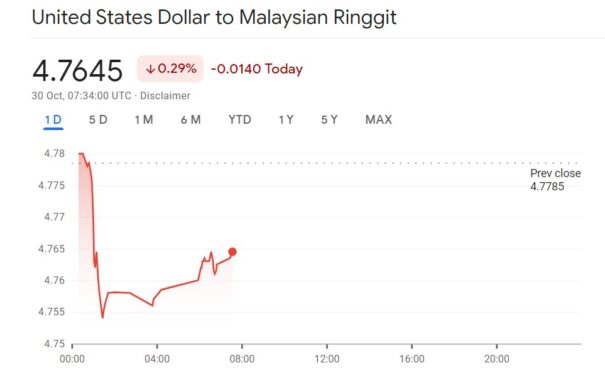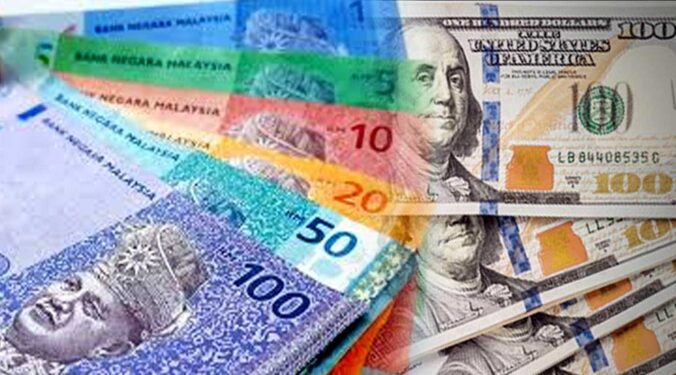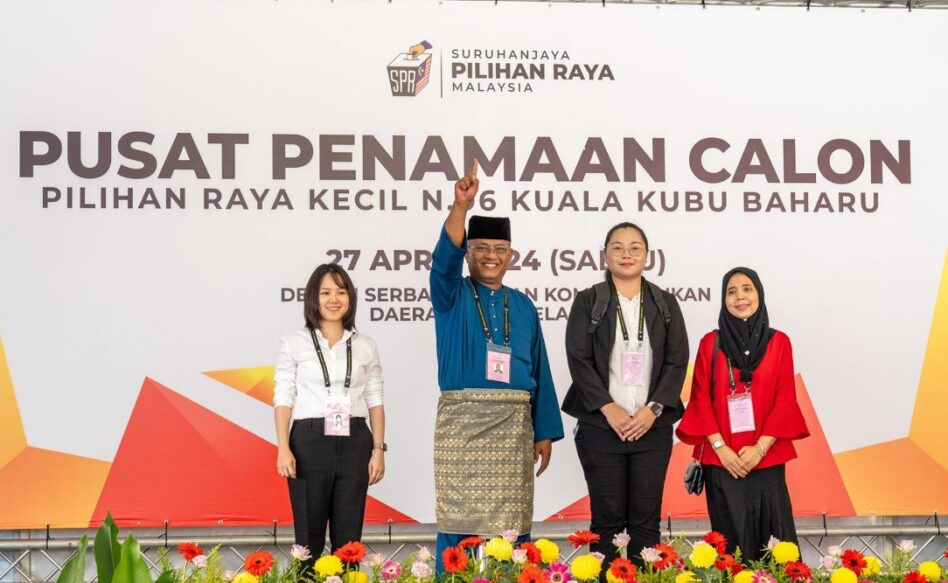THE strong US dollar narrative backed by the US Federal Reserve’s aggressive rate hiking has put some advanced economies and many emerging markets’ currencies – including the ringgit – under considerable pressures since March 2022.
The strong US dollar will have spill-over effects on emerging economies via trade and financial channels. Some emerging market economies have typically pressurised to raise their interest rate higher to defend their currencies but this comes with cost implications on domestic investment spending and consumption via increased borrowing costs.
There are two key factors that make a strong greenback and higher US interest rate problematic for governments to finance their budgetary needs and corporates for their investment financing.
The Federal government’s (FG) deficit budget financing needs is predominantly financed domestically via the issuance of ringgit-denominated bonds, namely the Malaysia Government Securities (MGS) while external loans (in foreign currencies) only constituted 2.2% of total FG debt.
Hence, a strong US dollar and high US interest rates have a small impact on the government’s debt servicing. Foreign exchange risk is minimal.
However, as foreign holdings of the ringgit bonds stood at RM281.5 bil or 24.6% of total FG’s debt as of end-June 2023, a reduction in the holding of domestic bonds as investors seek for better return on investment due to higher yield differentials between Malaysia’s 10-year yield bond (4.22%) and the US Treasury’s 10-year’s 4.875% would exert downward pressures on the ringgit.

More headwinds to mitigate
Malaysians have to make some painful adjustments for bracing through the ringgit’s volatility and weakness for a longer while. There will be winners and losers in the domestic economy when the ringgit depreciates on a larger and sustained basis as this would influence the decision of households (consumers) and businesses to consume and invest.
The magnitude of impact on economic sectors varies depending on the import content. The export-oriented sectors, especially palm oil (domestic materials), benefit from higher export earnings in the ringgit terms.
While domestic tourism also stands to benefit from the cheap ringgit, the government has to create the right policy, including a review of restrictive visa policies, build tourism infrastructure, tourism products, marketing strategies and safe environment for tourism to thrive.
For businesses and investors, the ringgit’s depreciation will mean higher cost of imported inputs and capital goods such as equipment and machinery while the imported consumption goods and services will be more costly for consumers, leading to a rise in overall cost of living.
Not only do Malaysians having to spend more on travelling abroad but also incur higher education expenses for sending their children abroad.
Under a flexible exchange rate regime, the focus of economic and financial management policies is to ensure the overall economy is resilient and domestic financial system is strong enough to absorb the exchange rate shock.
The expenditure-switching effects adjusting to relative demands in response to exchange rate movements would help to minimise the spill-over effects of stronger US dollar on economic output, trade sector, consumption and investment as well as inflation.
For instance, the producers substitute intermediate and capital goods between imports and domestically produced alternatives while the lowering of import duties on machinery and equipment as well as on consumer products help to ease cost pressures of businesses and living expenses of households.

Malaysians can help to reduce pressure on the ringgit by travel locally or by studying in local higher learning institutions by enrolling in twining programmes. Meanwhile, currency hedging helps businesses to protect themselves against losses caused by fluctuations in exchange rates.
No quick fixes
The strong US dollar is a global trend, hence not generally indicative of significant fundamental weaknesses in our domestic economy.
It is widely acknowledged that external forces were the main culprit driving the ringgit’s depreciation which include expectations for the US interest rate to remain higher for longer or capital outflows to seek better return on investment due to rising yield differentials between Malaysia bonds and the US Treasuries.
Likewise, investors are torn in between the still resilient US economy and concern over the China economy; and increasing concerns about the latest conflicts in the Middle East which somehow lifted the strength of the US dollar.
The appropriate policy responses to the ringgit’s depreciation pressures requires a focus on the drivers of the exchange rate change and to preventing market and liquidity disruptions on domestic economic activities.
Foreign exchange intervention must not substitute for warranted adjustment to macro-economic policies. Malaysia must preserve large accumulation of foreign reserves (mid-Oct 2023: US$108.9 bil) to deal with potentially worse outflows and turmoil in the future.
Our economic and financial fundamentals have not weakened significantly compared with previous economic shocks. Nevertheless, we have to enhance economic resilience and address the vulnerabilities that could place our country on the risk horizon, including severe capital outflows due to a loss of appetite for emerging market assets.

We reckon that there are no quick fixes to strengthen the ringgit in the short-term. The government simply has to work alongside Bank Negara Malaysia (BNM) to strengthen economic resilience through improving the fiscal deficit and debt level; addressing the structural weaknesses to increase economic growth, improve competitiveness and investors’ friendly investment climate to drive higher inflows of FDI (foreign direct investment) and DDI (domestic direct investment) as well as expand exports to increase the ringgit’s value proposition.
We are somehow comforted by BNM Governor’s recent remark that the central bank will do whatever is necessary to ensure the ringgit continues to adjust in an orderly manner.
Equally important is to ensure a stable political environment to sustain both domestic and foreign investors’ confidence on the government’s credibility to be fully committed for raising the ceiling and bar of Malaysia under the Madani Economy framework.
This entails restructuring the economy to the level of making Malaysia as an Asian economic leader and to improve the quality of life for all Malaysians. – Oct 30, 2023
Lee Heng Guie is the executive director at Socio-Economic Research Centre (SERC) Malaysia.
The views expressed are solely of the author and do not necessarily reflect those of Focus Malaysia.










